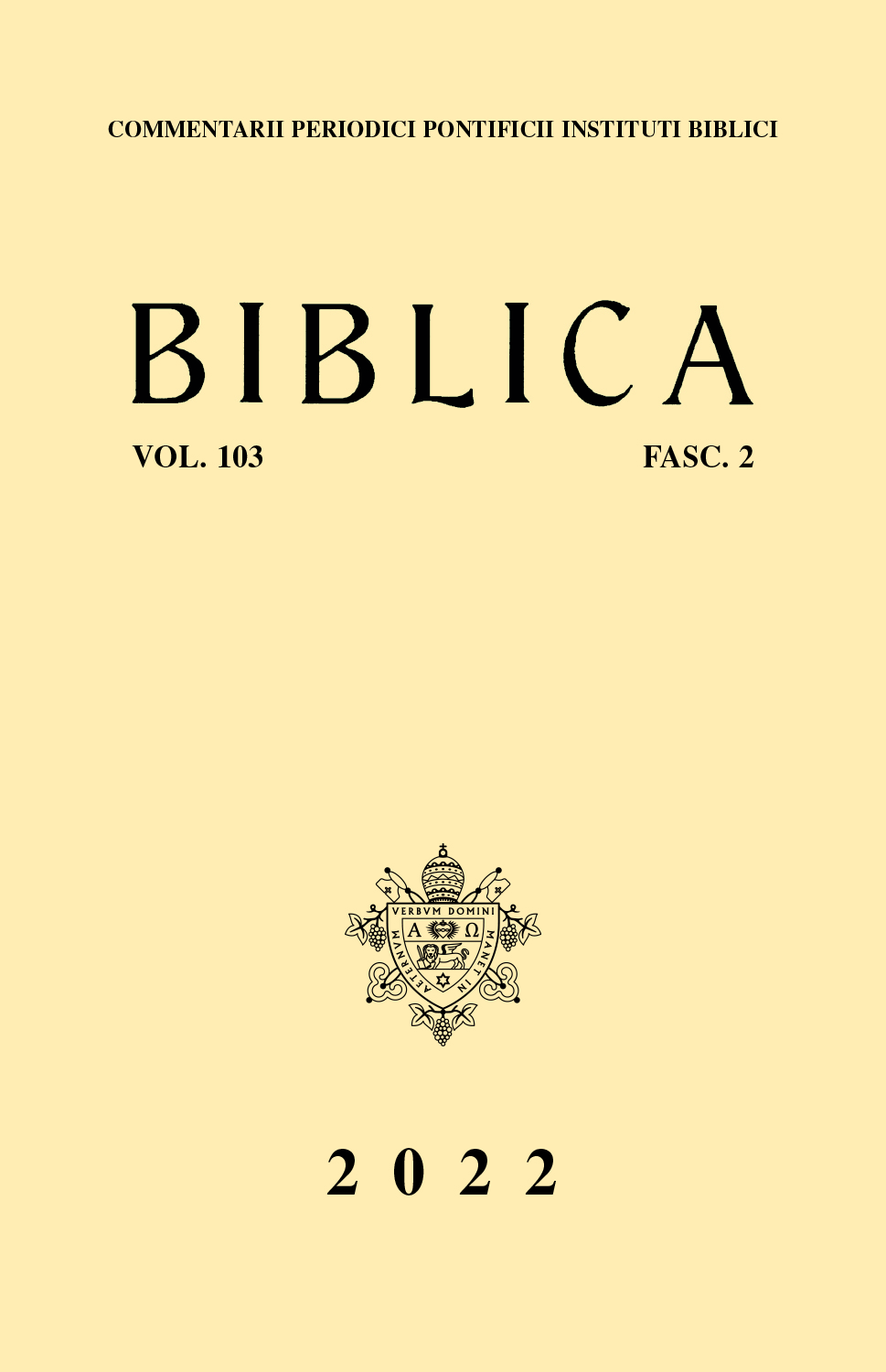 previous article in this issue previous article in this issue | next article in this issue  |

Preview first page |
Document Details : Title: Εἰς ἑαυτὸν δὲ ἐλθών Subtitle: Luk 15,17 im Lichte ausserbiblischen griechischen Schrifttums Author(s): KELLENBERGER, Edgar Journal: Biblica Volume: 106 Issue: 1 Date: 2025 Pages: 124-131 DOI: 10.2143/BIB.106.1.3294362 Abstract : Does εἰς ἑαυτὸν δὲ ἐλθών (a hapax within the NT and missing in LXX) refer to the introspection of the prodigal son, i.e. his own initiative? Or does it mean awakening from a daze, which leaves it more open as to how the decision to return home came about? The exegetical decision is crucial for the understanding of the parable, which is shaped by powerful expressions of the divine joy over the 'lost' ('dead') and 'found' ('living') son. A review of the non-biblical evidence in the Thesaurus Linguae Graecae (also for ἐν ἑαυτῷ γενόμενος [Acts 12,11]) clearly speaks against introspection and in favor of the alternative. |
|


